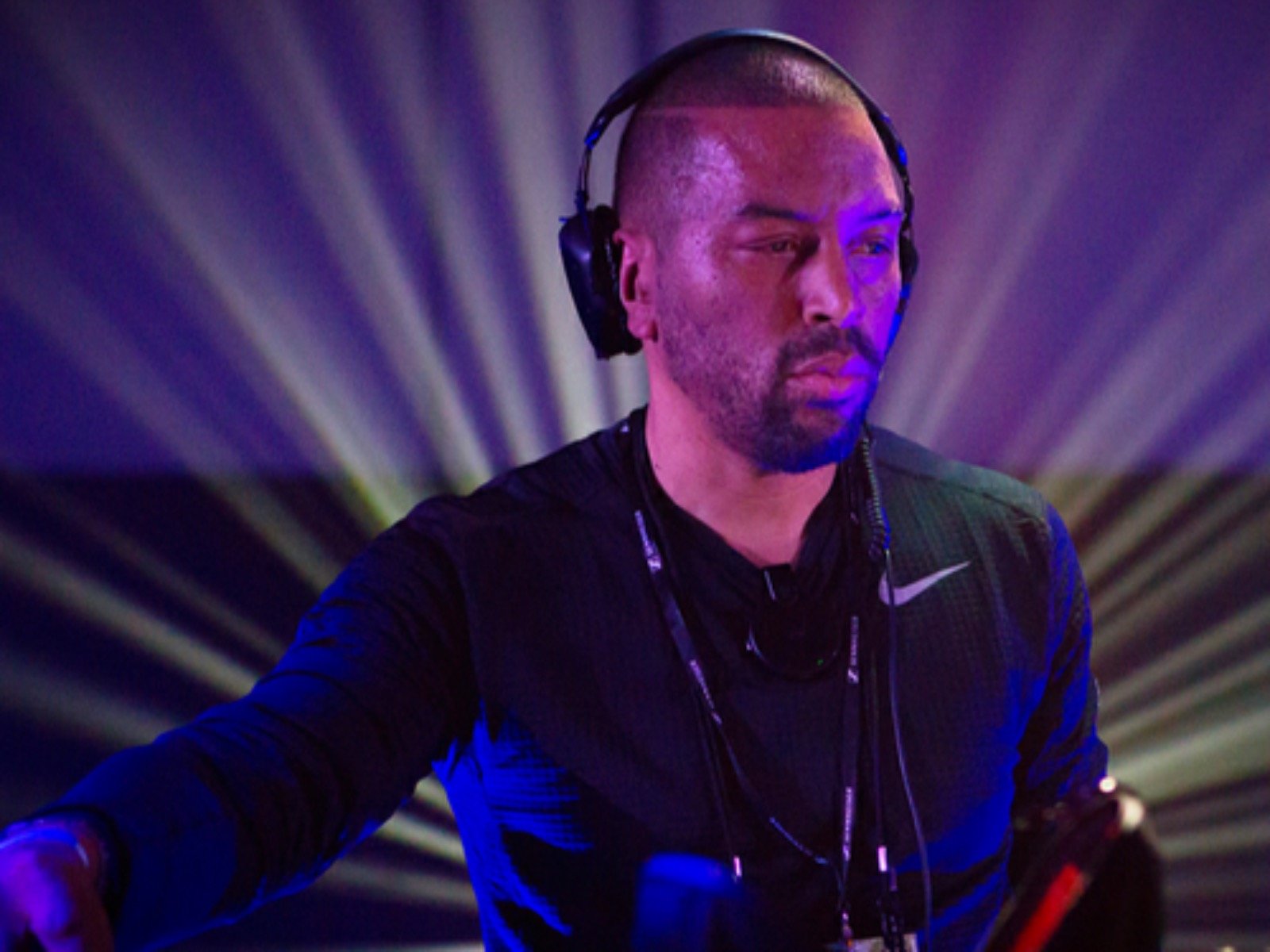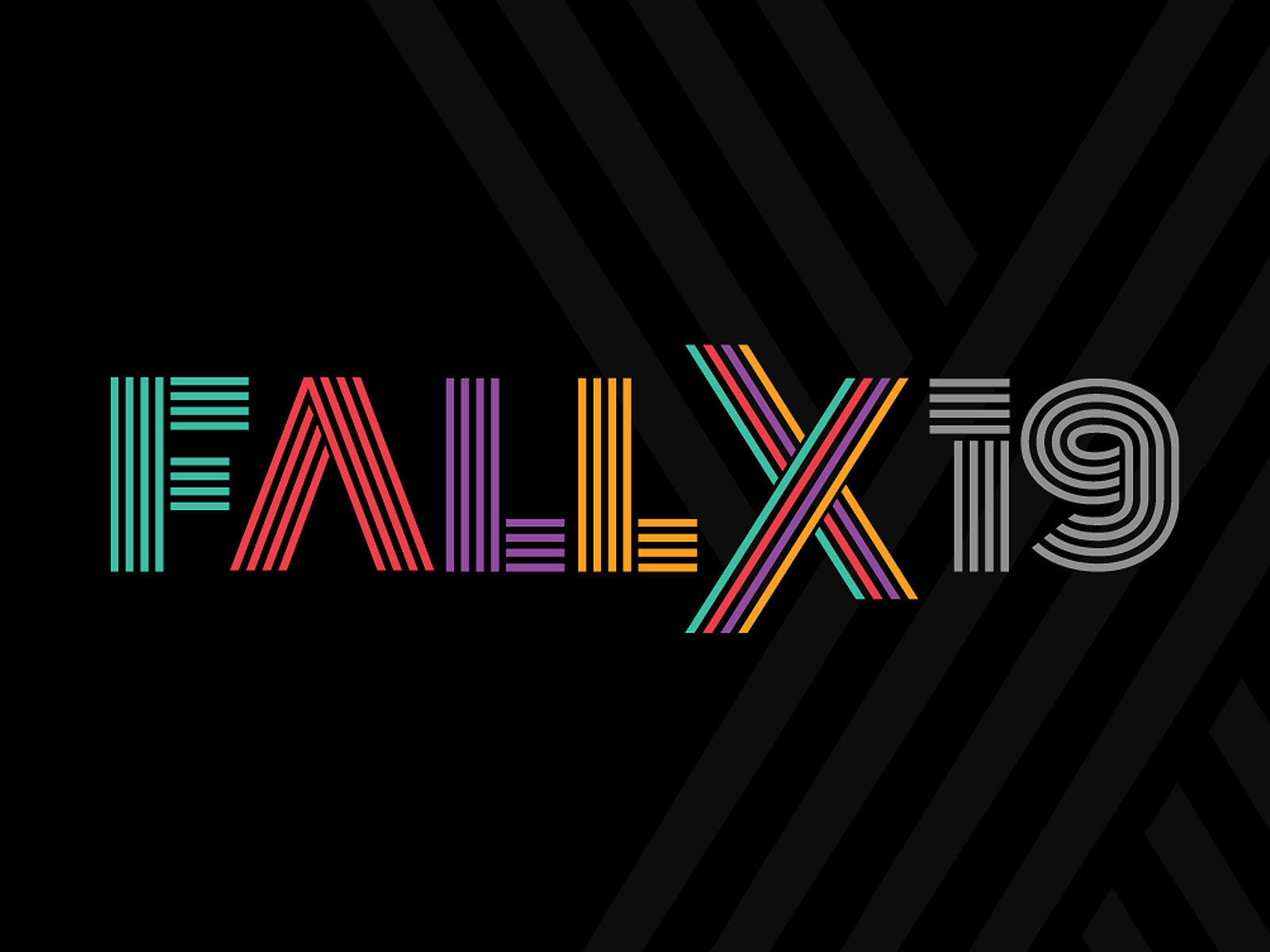Some might be content merely co-founding one of the most influential music groups of the '80s, one of the cornerstone acts of an entire genre. Some might feel just fine spending the rest of their lives coasting on the fame and recognition of that Hall-of-Fame-level achievement.
"Some" does not include Arabian Prince.
One of the first four founding members of the iconic '80s hip-hop group N.W.A. alongside Ice Cube, Dr. Dre and Eazy-E, Arabian Prince stepped aside from the tandem – but by no means from the music industry entirely – shortly after the release of their monster studio debut, "Straight Outta Compton." He quickly, however, stepped onto a new, and arguably even more lucrative, path: the growing world of technology.
Over the years, he would play a key role in hundreds of video games through the 3-D animation and special effects studio he created, as well as work as a consultant in the constantly evolving and advancing field. Now, he's developed a plug-and-play graphics processor for video game consoles, just launched an esports and gaming consultant group called Black Dog Gaming, and helped share his passion for technology to all via his philanthropic project Open Labs, opening places for people of all backgrounds to explore a future in the field. All of that, while still keeping his foot in the world of music, DJing and production.
Most pressing for Brew City tech-heads and rap-heads, however, is that he'll be making an appearance at this weekend's Fall Experiment two-day tech extravaganza – on the stage both as one of the event's key speakers, discussing the overlap of music, gaming and technology, and as the opening act for Steve Aoki at Saturday night's big concert finale.
Before all of that, though, OnMilwaukee got a chance to chat with the rap and tech giant over the phone about the state of hip-hop today, his favorite (and least favorite) games that he's ever worked on and what Milwaukee – and esports – need to do to make their next big steps.
OnMilwaukee: What came first for you: hip-hop or technology?
Arabian Prince: I was the love of music first, honestly. My mother was a classical pianist, and my father was a book writer and editor of magazines and newspapers, and my uncles were all into music really heavily. One of my uncles was my big influence. He was into Parliament Funkadelic. He was into all of the funk. He was into early electronic and rock. So I had this weird, crazy influence of music in my head.
Then, my cousins and uncles – most of them were sent away to the military to be reformed because they were crazy (laughs) – they would come back in town from overseas with all of this electronic stuff: synthesizers, HAM radios, mechanical stuff. And I’m a young kid, seven or eight years old, and I’m taking this all in, learning how to do Morse code and be on a HAM radio. I had a pretty deep voice at a young age, as you can probably tell because I have a deep voice now. And I just fell in love with all of this stuff – and this is what kept me out of the streets.
So, for me, it was being into technology – and naturally, the moment I made my first royalty check at 15 and a half years old when I was a young DJ, I bought a computer. I think my first computer was a Texas Instruments TI-99 or a TRS-80 or something like that. Then I got a Commodore VIC-20 and a Commodore 64. And the rest is history.
Looking back as one of the early forerunners of rap, what do you see as the state of hip-hop right now?
I love all types of music, because I look at music as an art form. Everybody has their eye or their vision or their sound or their look or their feel. So for me, I appreciate all music no matter what it is. I’m not that guy who, like some of these older rappers, who are like, "Man, this new rap is garbage – always mumble-rapping this or that and all of this repetitive stuff. I’m not into that." I’m totally the opposite.
I understand because when we started doing music in the ’80s, it was the same thing. When the Beatles came out and became these huge artists, their music was garbage to another generation. Heavy metal and rock and new wave: When all of these different forms of music came out, of course people aren’t going to like it because it’s different from the norm.
For me, I appreciate the evolution of sound, because that goes to show that there’s an endless, unlimited resource of creativity in this world. It’s going to go on forever. The next generation is going to define that sound. Even now, trap is evolving because it’s been around already for five years. So it’s turning into something else, because the younger kids are into something else. So I love it. For me, I’m just happy to be there to hear it and see it. When I see people out there who are like, "You’re a legend," I’m like, "Nah, I’m just old." (laughs)
You’ve created an incredible living in the tech world and the esports world. What do you think is the next step for esports to make that leap further into the mainstream?
I have an idea, and I’m working on some stuff as we speak. But what’s going to make esports a household thing is not going to be the gamers per se. It’s got to proliferate down to the simple common denominator. The simple games – like your Candy Crushes and your Toy Blasts and games like that that a lot of people play on a plane or on the bus or on the toilet or whatever, that moms and grandmothers and all these people play because everybody plays games in some format – it’s once those become a competitive thing.
I don’t know how old you are, but when I was young, people would come over to the house and play dominos and spades and blackjack and card games or get competitive with Monopoly. Now, everything’s gone digital, and once everything becomes competitive, I think that’s what makes esports a household word.
Right now, esports is big in gaming, but the problem is, unlike football or baseball or basketball, that’s stuff you can look at and immediately understand that a team is winning or that team is doing better than another team. If you look at "Dota" or "League of Legends" or games like that or even sometimes "Fortnite" or "Overwatch," if you’re not a gamer, you don’t know what the hell is going on. You’re looking at the screen and it’s like, "Yeah … there’s stuff moving around." You don’t know who’s who or what’s what.
So it has to simplify. Now, you see that "Madden" is big or "Street Fighter" games are getting into competitiveness – your "Rocket Leagues" and "Super Smash Bros," which are more simplistic games. Now we’ll see accepting now that other people can understand.
What do you think is necessary for a city – like Milwaukee – to grow into a tech hub, a place that people think of when they think about technology and esports?
This is something I’m hoping I can help your city with, because I’m building technology centers across the country for diversity and women in technology. It’s definitely something where you have to put technology in the hands of the people.
One thing that I was blessed with when I was growing up is it was at the forefront of the computer age, and we had stores – Egghead Software, Radio Shack. You could walk into Radio Shack and play with computers – and in order to use computers, you had to learn some sort of coding. We used to walk into Radio Shack and walk up to a computer and type in "10" and then whatever you want. Then it would go "20 goto 10," and you’d go run – 30 would be run. And you would run that, and it would just fill up the screen with whatever you typed on the screen. And sometimes we would type bad stuff (laughs) but that was the first ever piece of code I ever learned.
Nowadays, things have been simplified for us with iPhones and tablets and computers. People just click; nobody really learns. So in order to get people to really, really get into it and make your city a tech hub, you’ve got to put technology into the hands of the people or give them a place where they can explore and experiment and say, "I like to do this." So it’s just opening the minds of your city.
You’ve helped work on hundreds of games. Is there one game in particular that you look back on and say, "That’s my favorite thing I’ve been a part of," one that really sticks in your mind?
OK, so I’ll give you two sides of it.
There’s two games that stick in my head that’ll never leave my head because they were the bane of my existence. (Laughs) The first one was a Fox Interactive game I believe, and there was a game from the TV show "King of the Hill." And what people don’t understand is that, when you’re building a game, it’s not just about doing the code and the graphics and then you put the game out there. Years go into this – because when you’re building something from scratch, you’re going to have bugs and you’re going to have issues and you have to test it. There was this one area of the game that I was in charge of this scene where the daughter Luanne was singing this thing called "Manger Babies." And that, to this day, still sticks in my head. I had to listen to that for two or three weeks straight until we got that area right, because it was always buggy. And every day, I’m going to sleep at night with that sound in my head: "Manger Babies."
Then I got sent to Canada for two weeks right before Christmas because we had launched the game for Dr. Seuss’ "The Cat in the Hat" for the movie with Mike Myers. We did the game – and the game was horrible. It was buggy – but Christmas was happening, and we had to get it in the stores. So we shipped the game and put it in the stores, but we knew it was broken. (Laughs) So when people first ran the game, it said you had to download this patch – and the download was pretty much the size of the whole game because the game was busted. And I was stuck in Canada for two weeks during the holidays trying to fix it. So that’s on the bad side.
On the good side, believe it or not, it’s not gaming. It had to do with the work we did on the first series of "Power Rangers" for Saban, doing the visual effects for that. Eventually we did a game on that later, but that was a dope day for me, working on "Power Rangers" and creating the visual effects and some of the 3-D assets and creating the style of how you saw the things on screen.
You’re going to be talking about esports, music and technology, and the triple Venn diagram of those areas at Fall Experiment. Where do you see those three interlocking?
The thing that I say over and over and over again is that everything is tech. Bottled water is made with technology now. So for me, it’s all one medium. If you go home to your new smart TV and turn it on, you’ve got television – but there’s apps on your TV now. So there’s Spotify on your TV now. So it’s all one medium, and people just have to figure it out.
As much as it is a gigantic cliché to say that one has always had a passion for film, Matt Mueller has always had a passion for film. Whether it was bringing in the latest movie reviews for his first grade show-and-tell or writing film reviews for the St. Norbert College Times as a high school student, Matt is way too obsessed with movies for his own good.
When he's not writing about the latest blockbuster or talking much too glowingly about "Piranha 3D," Matt can probably be found watching literally any sport (minus cricket) or working at - get this - a local movie theater. Or watching a movie. Yeah, he's probably watching a movie.







